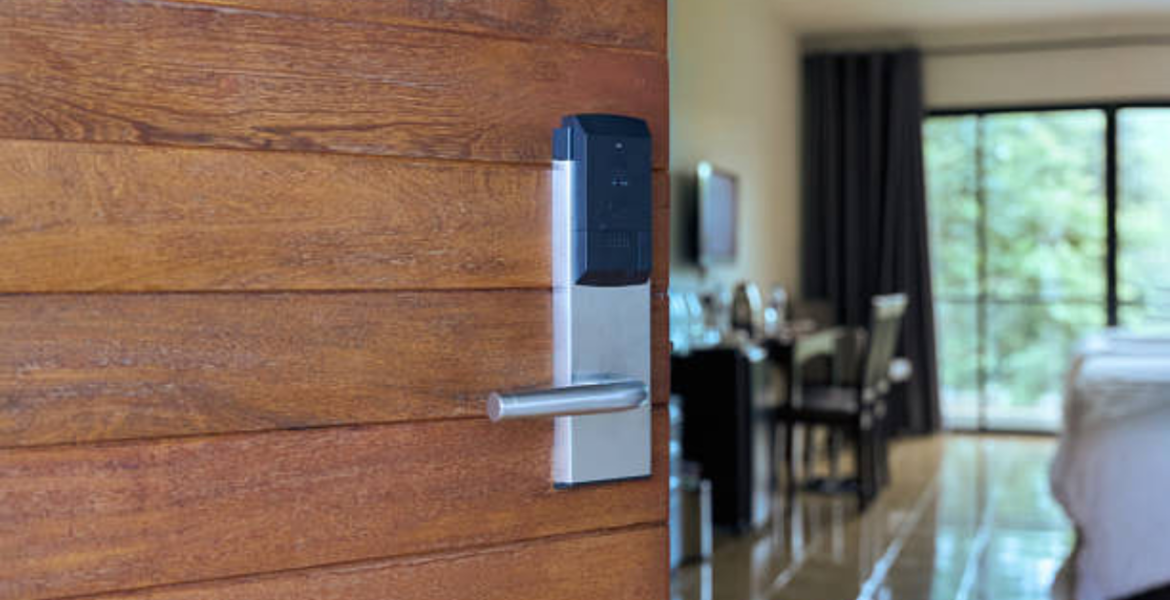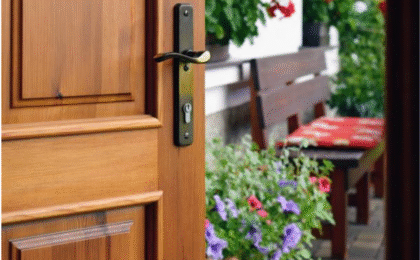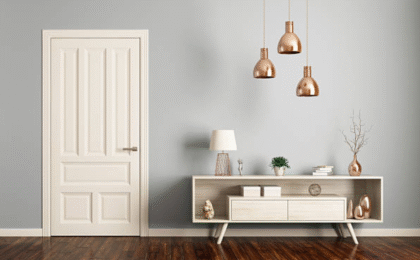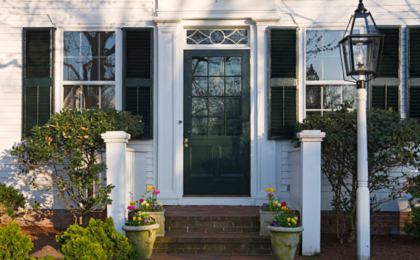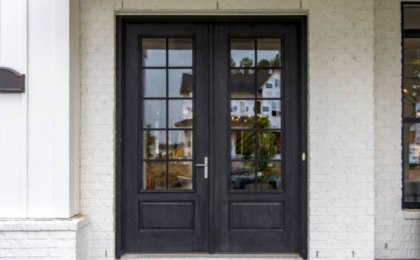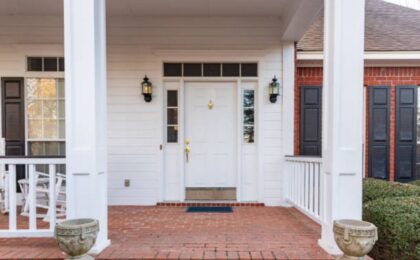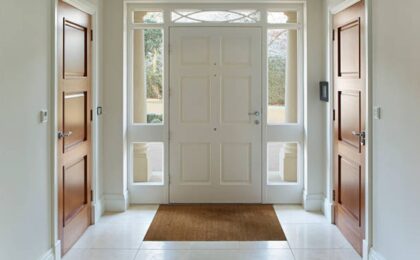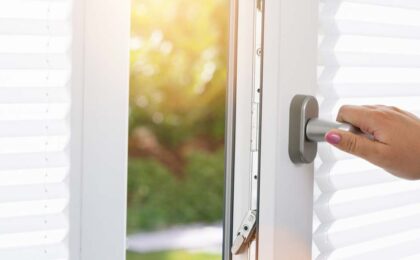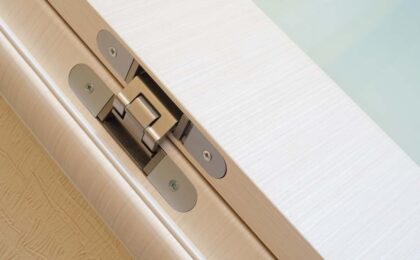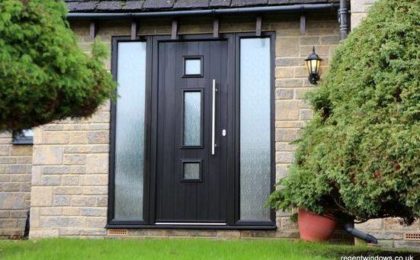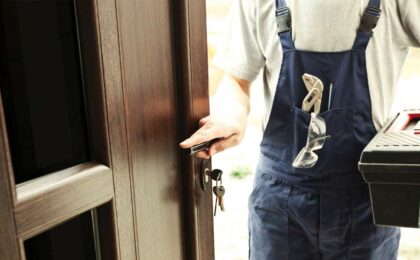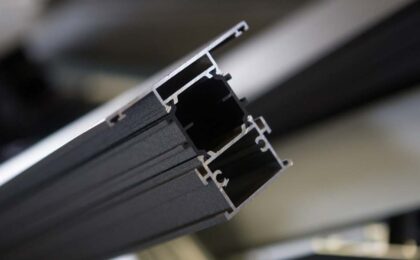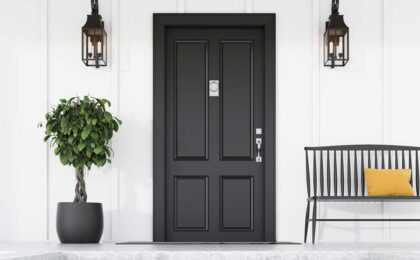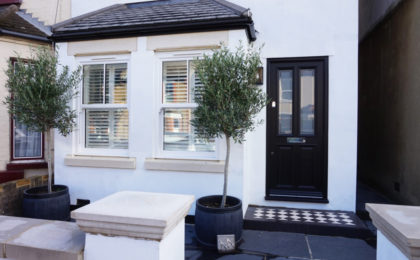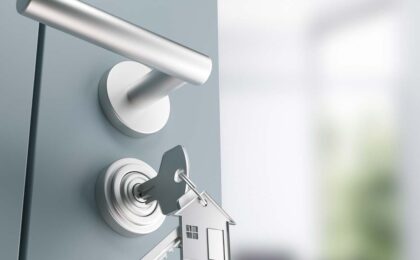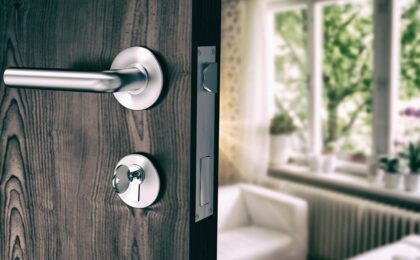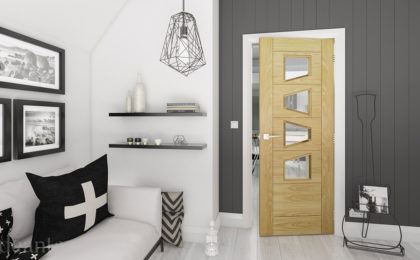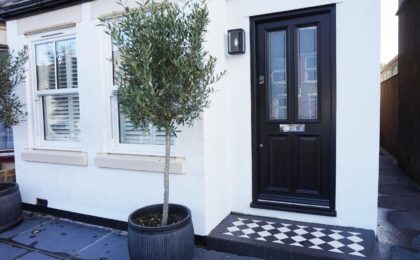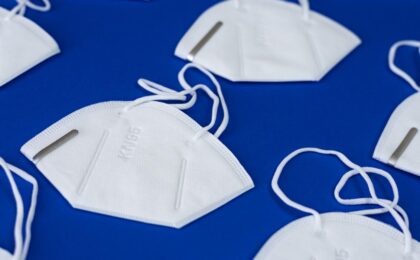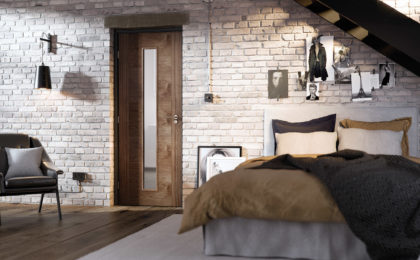Eco-conscious homeowners are constantly seeking ways to reduce energy usage, lower bills, and create a more comfortable indoor environment. One of the most effective ways to do this is by improving insulation at key points of the home — and front doors are a major factor.
In this blog, we’ll explore the tEnergy Efficiency of Composite Doors: What You Need to Know.
1. Why Ask: “Are composite doors energy efficient?”
Built for Style and Strength
But what makes composite doors stand out? Let’s explore how they deliver on energy efficiency and long-term savings.
2. Understanding Composite Door Construction & Thermal Insulation
Composite doors are built with multiple layers that work together to trap heat inside and keep cold air out.
Core Build:
Most composite doors have a solid timber or polyurethane foam core. This provides excellent thermal insulation.
External Skins:
The outer layer, usually made from GRP (glass-reinforced plastic), is both tough and weather-resistant. It protects the door from the elements and helps prevent energy leakage.
Sealing Systems:
High-quality compression seals and weather strips eliminate draughts, which significantly reduces heat loss.
These components combined allow composite doors from Afforde Doors to achieve low U-values, typically around 1.4 to 1.8 W/m²K. The lower the U-value, the better the insulation.”
3. Thermal Performance & Insulation Benefits
Composite vs. Other Door Types
When compared to uPVC, timber, or aluminium alternatives, composite doors perform significantly better in thermal efficiency:
- Wooden doors may look traditional but often lack modern insulation features.
- uPVC doors offer moderate insulation but can warp over time, reducing effectiveness.
- Aluminium doors are durable but tend to transfer heat more readily unless equipped with thermal breaks.
Composite doors are a top performer due to their foam cores and GRP skins.You can explore our range of composite exterior doors for better insulation performance.
Energy Ratings Explained
Composite doors are often rated A or B for energy performance. This rating is determined by their ability to reduce heat transfer, which directly contributes to energy savings.
4. How Energy Efficiency Translates into Savings
An energy-efficient composite door can help homeowners:
- Lower Energy Bills: Improved insulation reduces heating requirements, saving money year-round. Studies show savings of up to £90-£100 annually.
- Reduce Carbon Footprint: Less energy use equals fewer carbon emissions, helping environmentally conscious homeowners make a difference.
Working with a reliable doors company ensures you get the right fit and materials to maximise these savings.
5. Additional Home Comfort Advantages
Energy efficiency isn’t the only benefit:
- Noise Reduction: Solid cores and tight seals help block outside noise, making interiors more peaceful.
- Temperature Stability: The insulation not only keeps heat in during winter but also keeps heat out in summer, maintaining comfortable indoor climates all year long.
6. Durability & Maintenance: Energy Efficiency That Lasts
Composite doors are built to last:
- Long Lifespan: With a typical life expectancy of 25–30 years, their insulation performance remains consistent.
- Low Maintenance: These doors don’t warp, crack, or fade easily. Occasional cleaning and hinge lubrication are all that’s needed.
- Weather Resistance: Designed to withstand harsh UK weather without compromising thermal performance.
This durability ensures your energy-saving investment holds up over time.
6. Durability & Maintenance: Energy Efficiency That Lasts
Composite doors are built to last:
- Long Lifespan: With a typical life expectancy of 25–30 years, their insulation performance remains consistent.
- Low Maintenance: These doors don’t warp, crack, or fade easily. Occasional cleaning and hinge lubrication are all that’s needed.
- Weather Resistance: Designed to withstand harsh UK weather without compromising thermal performance.
This durability ensures your energy-saving investment holds up over time.
7. How to Choose the Most Energy-Efficient Composite Door
To ensure maximum energy performance, consider the following when choosing a door:
- Check U-Value and Energy Rating: Look for models with U-values below 1.6 W/m²K.
- Seals and Glazing: High-quality seals and double/triple glazing enhance thermal insulation.
Work with a trusted doors company in London to ensure expert installation and guaranteed product standards.
Not all composite doors are created equal. Choose high-spec models designed specifically for insulation. Explore our collection of composite exterior doors for premium options.
8. Wrapping Up: Is a Composite Door an Energy-Saving Investment?
A high-quality composite door is more than a stylish entrance. It’s an essential feature for any energy-conscious home. With:
- Lower energy bills,
- Enhanced indoor comfort,
- Long-term durability, and
- Sustainable materials,
To further improve whole-home energy efficiency, consider professional internal door installation solutions.
Choose your next composite exterior door and enjoy the benefits of working with a reliable doors company in London today.
Frequently Asked Questions
Will a composite door really make my house warmer in winter?
Yes. Homeowners often report warmer hallways and less need to run the central heating as frequently.
Are they eco-friendly?
Yes. With long Are they eco-friendly?, recyclable materials, and reduced energy usage, composite doors support sustainable living.
How long do composite doors last?
With minimal maintenance, composite doors typically last 25–30 years or more.
What about during summer?
Composite doors help maintain a cool interior by blocking external heat, reducing the need for fans or AC.
Can composite doors suit older or period-style homes?
Yes, especially when finished in traditional colours like Chartwell Green or with timber-effect textures.
 0208 643 3641
0208 643 3641